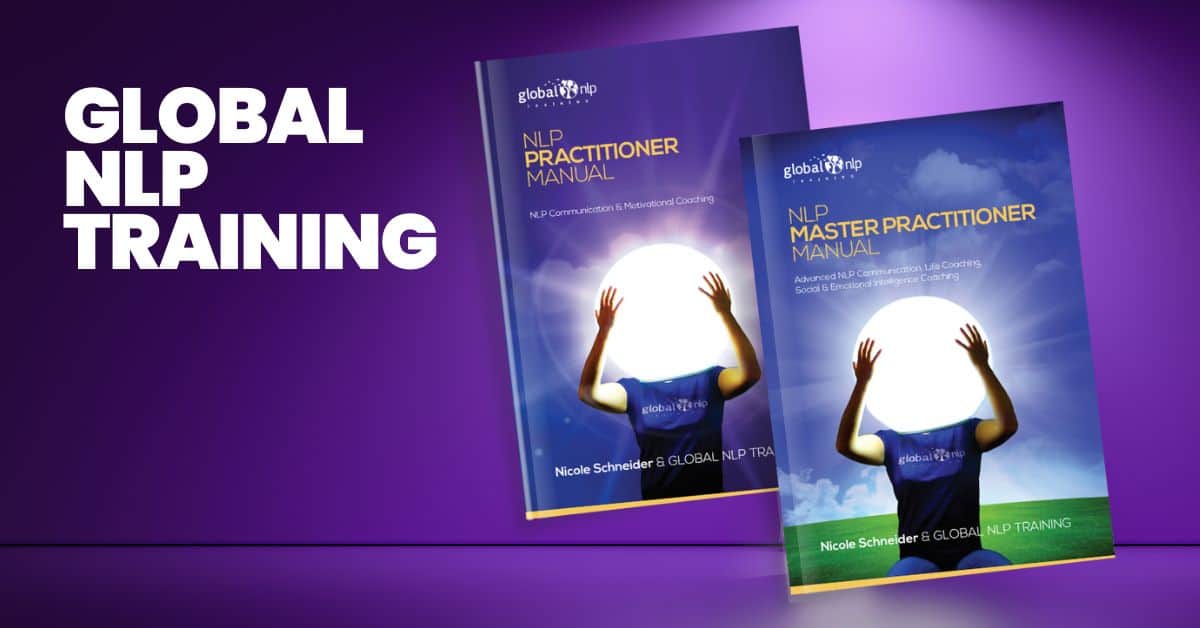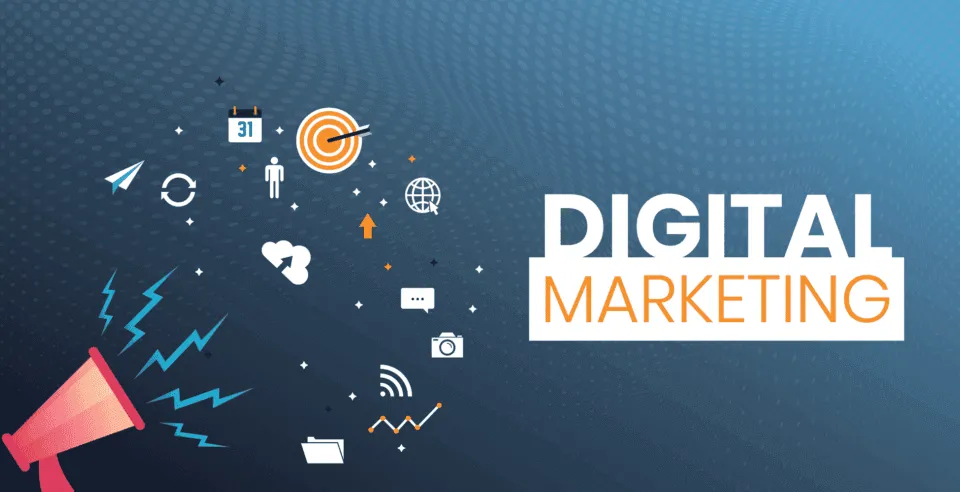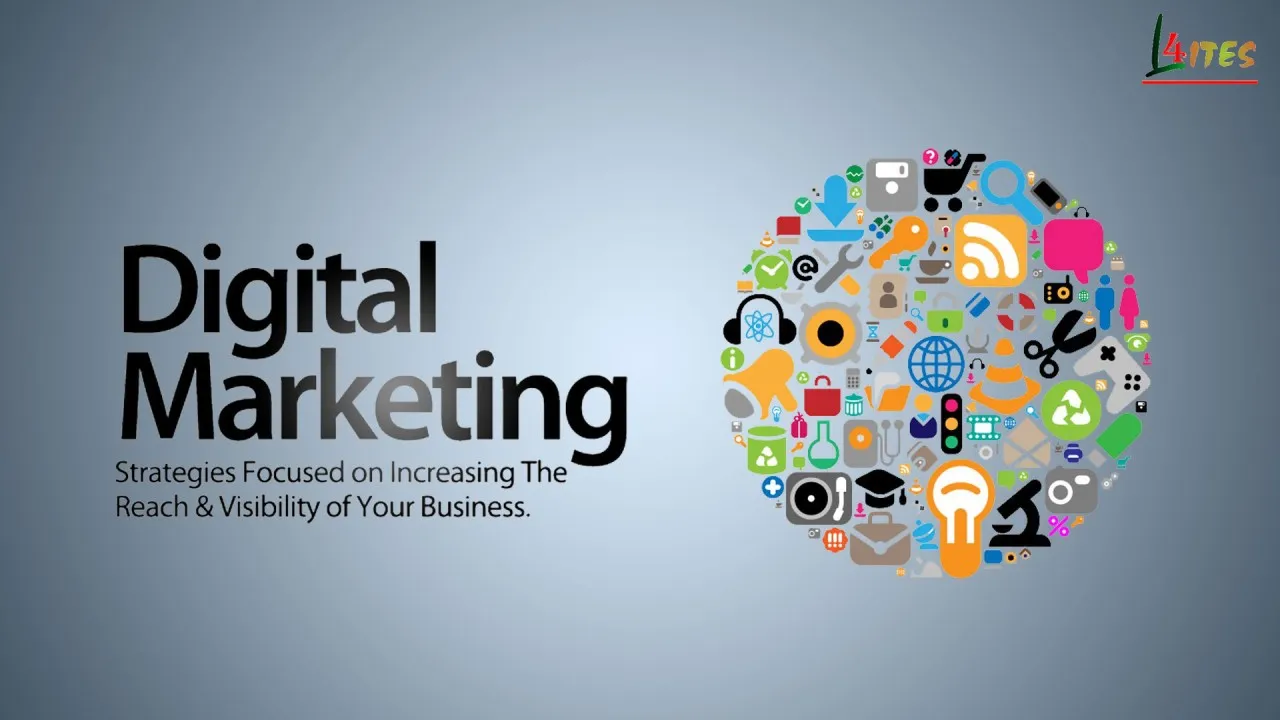Digital Marketing
What Makes Nashville’s Leading Podcast a Must-Listen for Residents

In a city as culturally rich as Nashville, finding a source for local news, stories, and entertainment is invaluable. The leading podcast in Nashville has quickly become a favorite for residents seeking to stay connected, informed, and inspired. But what makes it so appealing? With engaging stories, local insights, and a finger on the city’s pulse, this podcast is more than just a listen—it’s an experience.
Local Experts Bring Real Insight
One of the standout features is its lineup of local experts and storytellers from leading podcasts like the Nashville Scene Podcast. The team often brings in professionals who are deeply embedded in Nashville’s unique industries, from music to hospitality. These guests share perspectives that only someone with firsthand experience can provide, making each episode feel authentic. For listeners, it’s a way to see their city through the eyes of those shaping it. It’s a top choice for anyone craving a deeper connection and a fresh look at life here.
Discovering Hidden Gems
Nashville is full of hidden gems—places and experiences that don’t always make it into guidebooks. The podcast dives into these unique spots, sharing insights on lesser-known restaurants, events, and small businesses. Each episode feels like a personal tour, whether it’s about a cozy neighborhood café, an indie artist showcase, or a community festival. For residents who love discovering new places, it’s an ideal way to stay in the loop and find unexpected treasures around every corner.
Fostering Community Connections
In a city that values community, this podcast brings people together through shared stories and local pride. Each episode reinforces a sense of connection by featuring the people and events shaping the area’s character. The podcast frequently highlights local business owners, artists, and community leaders, fostering a sense of unity among listeners. It’s a refreshing reminder that the city isn’t just a place—it’s a network of individuals who genuinely care about their neighbors. For residents, tuning in feels like joining a conversation that’s both inclusive and inspiring.
Content for Every Listener
The podcast excels by offering content tailored for a wide audience. Episodes balance information and entertainment, ensuring each one has something valuable to offer. From exploring the city’s latest trends to discussing its rich history or interviewing inspiring locals, the podcast provides fresh perspectives for all tastes. For those who want to feel connected, informed, and inspired, it’s the perfect listen. With engaging storytelling and relatable topics, it keeps listeners eagerly coming back for more.
A Team of Local Pros
Behind the scenes is a dedicated team of professionals who know the city inside and out. Their passion is evident in every episode, creating a polished and relevant listening experience. With an ear to the ground on trends and events, they ensure that each episode speaks directly to residents. By collaborating with experts and staying in tune with their audience, they’ve crafted a podcast that’s informative and genuinely engaging. Their knowledge and dedication add value to every episode.
Why Residents Should Tune In
In a busy city, it’s easy to miss out on what makes this place special. This podcast makes it simple to stay connected, offering a blend of insight, inspiration, and entertainment. Each episode invites listeners to learn, discover, and connect with their city in fresh ways. For anyone seeking a stronger connection to Nashville, this podcast is essential, providing a richer experience of everything the community has to offer.
The leading podcast like the Nashville Scene Podcast is essential listening for residents who want more than just news—they want community and connection. By featuring local experts, uncovering hidden gems, and sharing a wide array of voices, it captures the essence of the city. Each episode is an invitation to celebrate everything that makes this place unique. For those looking to deepen their connection, tuning in is the perfect first step.
Business
Cracking the Code of Personal Development: The NLP Practitioner Way

Introduction to NLP Practitioner Training
Understanding Neuro-Linguistic Programming
Neuro-Linguistic Programming (NLP) is a fascinating discipline that explores the connection between the brain (neuro), language (linguistic), and behavioral patterns (programming). It originated in the 1970s through the collaboration of Richard Bandler and John Grinder, who sought to understand how successful individuals achieved excellence. By modeling their thought processes and communication styles, NLP practitioners can decode and replicate success. For anyone looking to enhance themselves, NLP provides invaluable insights into personal transformation. It encourages individuals to challenge their beliefs, reprogram their mindset, and adopt new strategies for effective living.
Benefits of NLP in Personal Development
NLP offers a transformative journey of self-discovery and growth, with numerous benefits:
- Elevate Business Management: Enhances management capabilities and leadership skills.
- Coaching Empowerment: Develops the ability to coach and influence positive change in others.
- Fear Conquering: Helps overcome internal limitations, leading to greater authenticity and purpose.
- Professional Performance: Boosts performance and fosters an authentic leadership style.
By engaging deeply in NLP Practitioner Training, participants embark on a path that can significantly transform their lives, both personally and professionally.
The Power of Beliefs and Values in NLP
Identifying and Changing Limiting Beliefs
One of the core tenets of Neuro-Linguistic Programming (NLP) is understanding how beliefs shape our behaviors and outcomes. Limiting beliefs—those negative assumptions that hold you back—can hinder personal and professional growth. Recognizing these beliefs is the first step towards change. To identify limiting beliefs, consider asking yourself reflective questions, such as:
- What do I believe about my abilities?
- Are there recurring thoughts that discourage me?
- How do these beliefs affect my decisions?
Once identified, NLP techniques can aid in altering these beliefs. For example, reframing helps individuals view situations from a more empowering perspective, transforming fear into motivation.
Aligning Values with Goals
Aligning personal values with goals creates a sense of purpose and fulfillment. Values are the guiding principles that shape decisions and actions, and when they resonate with your goals, motivation amplifies. To ensure alignment:
- List your core values.
- Set SMART goals (Specific, Measurable, Achievable, Relevant, Time-bound) that reflect these values.
- Regularly assess your progress and adjust your goals if necessary.
By harmonizing beliefs and values, individuals can pave a clearer path toward achieving their objectives, ultimately leading to greater satisfaction and success in life.
Techniques for Effective Communication
Using Language Patterns for Influence
Effective communication is vital in all aspects of life, and Neuro-Linguistic Programming (NLP) offers powerful tools to enhance language skills. One of the standout features of NLP is its focus on language patterns that can influence others positively. For instance, embedded commands can subtly direct someone’s thoughts or actions. This could be as simple as saying, “When you think about your goals, start to feel inspired.” The command is embedded within a conversational context, making it more impactful. Additionally, using positive language reinforces uplifting ideas and encourages a constructive mindset. For example:
- Instead of saying, “Don’t panic,” try “Stay calm and focused.”
- Replace, “I can’t do this,” with “I’ll figure this out step by step.”
Non-verbal Communication Strategies
While words matter, non-verbal cues can speak volumes. Body language encompasses gestures, posture, and facial expressions, all of which can profoundly influence how a message is received. To harness these non-verbal strategies:
- Maintain eye contact to show engagement.
- Mirror or match the body language of the person you’re communicating with to create rapport.
- Use open gestures to convey honesty and transparency.
By integrating effective language patterns and non-verbal communication, individuals can forge deeper connections and effectively convey their messages, leading to richer, more meaningful interactions.
Goal Setting and Achieving with NLP
Creating SMART Goals
Setting effective goals is a cornerstone of personal success, and using the SMART criteria can significantly enhance your goal-setting process. SMART stands for Specific, Measurable, Achievable, Relevant, and Time-bound. To create SMART goals:
- Specific: Define exactly what you want to achieve. Instead of saying, “I want to get fit,” opt for, “I want to run a 5K by July.”
- Measurable: Include metrics to track your progress. For example, “I will run three times a week.”
- Achievable: Ensure your goal is realistic. If you’re starting from scratch, it’s best to aim for gradual progress.
- Relevant: Align your goal with your personal values or long-term aspirations to maintain motivation.
- Time-bound: Set a clear deadline. This adds urgency and aids in structuring your plan.
By using these criteria, you can clarify your intentions and create a structured approach to achieving your aspirations.
Overcoming Procrastination and Self-Sabotage
Many people struggle with procrastination and self-sabotage, often due to limiting beliefs or fear of failure. NLP offers effective strategies to tackle these barriers head-on.
- Identify Triggers: Recognize when and why you procrastinate. Is it due to fear or uncertainty?
- Reframe Negative Thoughts: Use NLP certification like reframing to shift your perspective. Instead of thinking, “I’ll never finish this,” rephrase it to, “I can make progress one step at a time.”
- Use Anchoring: Anchor positive emotions to proactive actions. For instance, before starting a task, recall a time when you felt accomplished, allowing that feeling to motivate you to begin.
By integrating these strategies into your life, you can effectively overcome procrastination and self-sabotage, paving the way for reaching your goals with confidence.
Transforming Emotional States with NLP
Managing Stress and Anxiety
In today’s fast-paced world, stress and anxiety can often feel overwhelming. Fortunately, Neuro-Linguistic Programming (NLP) offers effective techniques to help individuals manage these emotional states. One powerful method is anchoring, where you associate a specific gesture or touch with a calming memory or feeling. For example:
- Recall a time when you felt truly relaxed.
- While fully immersing yourself in that memory, gently press your thumb and forefinger together.
- Whenever stress arises, repeating this action can trigger that feeling of calmness.
Another important technique is reframing, which allows you to change your perception of a stressful situation. Instead of focusing on negative outcomes, ask yourself, “What can I learn from this?” By actively shifting your perspective, you can reduce anxiety and embrace challenges as opportunities.
Enhancing Emotional Intelligence
Emotional intelligence (EQ) is vital in understanding and managing emotions effectively. NLP can enhance your EQ by improving self-awareness and empathetic communication. To develop emotional intelligence:
- Practice active listening: Focus on understanding others’ emotions without interrupting.
- Reflect on your feelings: Journaling about daily emotional experiences fosters greater self-awareness.
- Use language patterns to articulate your emotions clearly, which helps in expressing feelings constructively.
Through these NLP techniques, you can create a solid foundation for transforming emotional states, allowing for personal growth and improved relationships.
Mastering NLP Techniques for Personal Growth
Submodalities and Anchoring
One powerful aspect of Neuro-Linguistic Programming (NLP) involves understanding submodalities—the finer qualities of our sensory experiences that shape our perceptions. For example, when recalling a memory, you may visualize it as bright and clear or dim and blurry. By adjusting these submodalities, you can transform your emotional experience. To practice, start by:
- Identifying a memory that brings you discomfort.
- Visualizing it while altering its characteristics (e.g., changing brightness or color).
- Notice how these changes affect your emotions.
Anchoring is another essential technique that allows you to create a trigger for positive states. By associating a specific gesture with a desired emotional state, you can access that feeling anytime. For instance, squeeze your thumb and index finger together while recalling a moment of confidence. Repeat this process until the anchor is established, then use it to invoke confidence during challenging situations.
TimeLine Therapy and Regression Techniques
TimeLine Therapy is a fascinating NLP technique that involves exploring your personal timeline to address and release negative emotions. It allows you to visualize your past, present, and future, enabling you to confront limiting beliefs and emotional baggage. To benefit from TimeLine Therapy:
- Visualize your timeline as a path, with significant events marked along it.
- Identify negative emotions linked to past experiences and let them go by mentally releasing them from your timeline.
- Focus on setting positive intentions for the future, which guides your growth.
Regression techniques complement this by allowing individuals to revisit earlier experiences, often in childhood, to understand how they formed limiting beliefs. By processing these experiences constructively, you create space for healthier perspectives and emotional states. These powerful NLP techniques not only foster healing but also promote profound personal transformation, empowering individuals to unlock their true potential.
This post was delivered to you by the Accessily platform. If you want to showcase your content on our site, visit the Accessily Guest Post Marketplace.
Digital Marketing
Mastering the Digital Landscape: Top Picks for Digital Marketing Agencies

In today’s fast-paced digital world, the success of any business hinges on its ability to effectively navigate the online landscape. With consumers increasingly turning to the internet to research products and make purchasing decisions, having a robust digital marketing strategy is essential for staying competitive and reaching target audiences. However, with the multitude of digital marketing agencies available, choosing the right partner to help navigate this landscape can be daunting. To assist in this process, we’ve curated a list of top picks for digital marketing agencies that excel in various aspects of online marketing, from search engine optimization (SEO) to social media management and beyond.
Digital Marketing Agency A: SEO Specialists
- Description: With a focus on search engine optimization (SEO), Digital Marketing Agency A specializes in helping businesses improve their online visibility and organic search rankings. Their team of SEO experts stays up-to-date with the latest algorithms and best practices to ensure maximum effectiveness.
- Services Offered: Keyword research, on-page optimization, link building, content creation, technical SEO audits, local SEO optimization.
- Why Choose Them: If your business is looking to increase organic traffic and rank higher in search engine results pages (SERPs), Digital Marketing Agency A is an excellent choice for SEO expertise and results-driven strategies.
Digital Marketing Agency B: Social Media Mavericks
- Description: Digital Marketing Agency B is known for its prowess in social media marketing, helping businesses engage with their target audience and build a strong online presence across various social platforms.
- Services Offered: Social media strategy development, content creation, community management, influencer partnerships, paid social advertising.
- Why Choose Them: If your business aims to amplify its social media presence, drive engagement, and foster meaningful connections with customers, Digital Marketing Agency B can provide the expertise and creativity needed to achieve these goals.
Digital Marketing Agency C: Content Marketing Gurus
- Description: Content is king, and Digital Marketing Agency C understands the power of compelling content to attract, engage, and convert audiences. They specialize in crafting high-quality content that resonates with target audiences and drives results.
- Services Offered: Content strategy development, blog writing, video production, email marketing, infographic design, content distribution.
- Why Choose Them: Whether your business needs blog posts, videos, or email campaigns, Digital Marketing Agency C can deliver captivating content that captures attention and drives meaningful interactions with your brand.
Digital Marketing Agency D: Pay-Per-Click (PPC) Experts
- Description: Digital Marketing Agency D excels in pay-per-click (PPC) advertising, helping businesses generate targeted traffic and maximize their return on investment (ROI) through strategic ad campaigns.
- Services Offered: PPC campaign management, keyword research, ad copywriting, ad targeting, bid management, conversion tracking.
- Why Choose Them: If your business aims to increase website traffic, leads, and conversions through paid advertising channels such as Google Ads or Facebook Ads, Digital Marketing Agency D can provide the expertise and insights needed to optimize your PPC campaigns for success.
Digital Marketing Agency E: Full-Service Solutions
- Description: For businesses seeking comprehensive digital marketing solutions, Digital Marketing Agency E offers a full suite of services tailored to meet diverse needs and objectives.
- Services Offered: SEO, social media marketing, content marketing, PPC advertising, email marketing, website design and development.
- Why Choose Them: With Digital Marketing Agency E, you get the convenience and efficiency of working with a single partner for all your digital marketing needs. Their integrated approach ensures cohesive strategies and seamless execution across multiple channels.
Digital Marketing Agency F: Data-Driven Decision-Making
- Description: Digital Marketing Agency F leverages data analytics and insights to drive informed decision-making and optimize marketing strategies for maximum effectiveness.
- Services Offered: Data analysis, performance tracking, A/B testing, conversion rate optimization (CRO), marketing automation, customer segmentation.
- Why Choose Them: With Digital Marketing Agency F, your business can harness the power of data to identify opportunities, refine campaigns, and achieve better results. Their data-driven approach ensures that marketing efforts are continuously optimized for success.
Conclusion: In today’s digital age, choosing the right digital marketing agency is crucial for businesses looking to thrive and succeed online. By selecting a partner that aligns with your business goals, objectives, and budget, you can unlock the full potential of digital marketing and achieve measurable results. Whether you’re looking to improve your search engine rankings, enhance your social media presence, or drive more traffic and conversions, the top picks for digital marketing agencies highlighted in this article offer expertise, creativity, and proven track records of success in their respective areas of specialization. By partnering with one of these agencies, you can master the digital landscape and position your business for sustained growth and success in the digital era.
Digital Marketing
Digital Marketing vs. Traditional Marketing: Key Differences

In the realm of marketing, businesses face a critical decision: whether to allocate resources to traditional marketing channels or embrace the digital landscape. With consumers increasingly spending time online, the debate between digital marketing and traditional marketing has become more pronounced. Understanding the key differences between these two approaches is essential for crafting effective marketing strategies that resonate with target audiences and drive results.
Definition and Scope
Traditional marketing encompasses the conventional methods of promoting products or services, such as print advertisements, broadcast media (TV and radio commercials), direct mail, outdoor billboards, and event sponsorships. These channels have long been the go-to options for reaching mass audiences and building brand awareness.
On the other hand, digital marketing leverages digital technologies and online platforms to connect with consumers. It encompasses a broad range of tactics, including search engine optimization (SEO), pay-per-click (PPC) advertising, social media marketing, email marketing, content marketing, and influencer partnerships. Digital marketing offers unparalleled targeting capabilities, real-time engagement opportunities, and precise measurement of campaign performance.
Targeting and Reach
One of the most significant advantages of digital marketing over traditional marketing is its ability to target specific demographics with pinpoint accuracy. Through tools like Google Ads, Facebook Ads Manager, and LinkedIn Campaign Manager, advertisers can tailor their messaging based on factors such as age, gender, location, interests, and browsing behavior. This targeted approach minimizes wastage and ensures that marketing efforts are directed towards individuals most likely to convert.
In contrast, traditional marketing channels often rely on broad demographic segmentation and lack the granular targeting options available in digital advertising. While TV commercials and magazine ads can reach a large audience, they may not effectively reach the intended target demographic, leading to lower conversion rates and a higher cost per acquisition.
Cost Effectiveness
Digital marketing offers a cost-effective alternative to traditional marketing channels, particularly for small and medium-sized businesses with limited budgets. Unlike traditional media, which often require significant upfront investments, digital advertising platforms typically operate on a pay-per-click or pay-per-impression model, allowing advertisers to control their spending and optimize campaigns in real-time.
Furthermore, digital marketing offers greater transparency and accountability, as advertisers can track the performance of their campaigns in real-time and adjust their strategies accordingly. Tools like Google Analytics provide valuable insights into key metrics such as website traffic, conversion rates, and return on investment (ROI), enabling businesses to allocate resources more effectively and maximize their marketing dollars.
Engagement and Interactivity
Digital marketing excels in its ability to foster meaningful interactions and engagement with consumers. Social media platforms like Facebook, Instagram, and Twitter provide opportunities for two-way communication, allowing brands to engage directly with their audience through comments, likes, shares, and direct messages. This level of interaction helps build relationships, foster brand loyalty, and drive word-of-mouth referrals.
In contrast, traditional marketing channels are often one-way communication mediums, where brands broadcast their message to a passive audience. While TV commercials and print ads can generate awareness, they may lack the interactivity and engagement potential of digital platforms, making it challenging to establish a genuine connection with consumers.
Measurability and Analytics
One of the most significant advantages of digital marketing is its measurability and analytics capabilities. Unlike traditional marketing, which relies on subjective metrics such as brand awareness and ad recall, digital marketing allows advertisers to track and measure a wide range of key performance indicators (KPIs) with precision.
Tools like Google Analytics, Facebook Insights, and email marketing platforms provide comprehensive data on metrics such as website traffic, conversion rates, click-through rates, engagement levels, and customer demographics. This wealth of information enables marketers to assess the effectiveness of their campaigns, identify areas for improvement, and make data-driven decisions to optimize their strategies.
In contrast, traditional marketing channels often lack robust analytics capabilities, making it challenging to quantify the impact of marketing efforts accurately. While market research studies and surveys can provide insights into consumer behavior, they may not offer the same level of granularity and real-time feedback as digital analytics tools.
Conclusion
While traditional marketing channels continue to play a role in the marketing mix, the rise of digital marketing has transformed the way businesses connect with consumers. Digital marketing offers unparalleled targeting capabilities, cost-effectiveness, engagement opportunities, and measurability, making it an indispensable tool for modern marketers.
By understanding the key differences between digital marketing and traditional marketing, businesses can develop holistic marketing strategies that leverage the strengths of each approach to achieve their marketing objectives effectively. Whether through targeted digital advertising campaigns, engaging social media content, or personalized email marketing efforts, embracing digital marketing enables businesses to stay competitive in today’s fast-paced digital landscape.
-

 Travel1 year ago
Travel1 year agoOnboardicafe.com Login Exploring the Delights of Onboardicafe
-

 Food & Recipes1 year ago
Food & Recipes1 year agoFive Food Products You Must Avoid Giving to Your Infant
-

 Sports1 year ago
Sports1 year agoThe Most Popular Sports In The World
-

 Technology5 months ago
Technology5 months agoSustainable Practices in Video Production: Reducing the Carbon Footprint
-

 Sports10 months ago
Sports10 months agoSmart Solutions for Football Field Maintenance
-

 Health & Fitness11 months ago
Health & Fitness11 months agoSuboxone Tooth Decay Lawsuits and the Pursuit of Justice Against Indivior
-

 Entertainment1 year ago
Entertainment1 year agoNavigating the Web: The Ultimate List of Tamilrockers Proxy Alternatives
-

 Sports10 months ago
Sports10 months agoWearable Tech and the Future of Football










